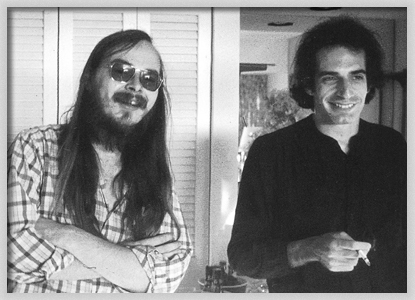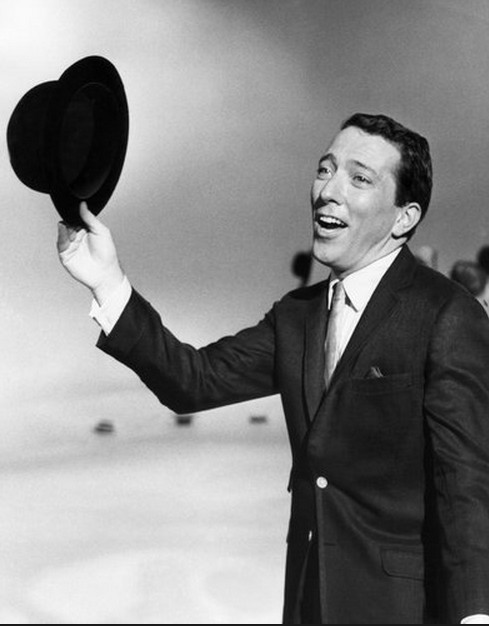“Santa’s Super Sleigh” is the platonic ideal of Christmas novelty songs. It’s the platonic ideal because it doesn’t actually exist. It’s a fictitious song invented by Nick Hornby in his novel About a Boy, though in the book all the lyrics that Hornby provides are these:
So just leave out the mince pies, and a glass of sherry,
And Santa will visit you, and leave you feeling merry,
Oh, Santa’s super sleigh,
Santa’s super sleigh…
In the book and the movie based on it, the song exists in the same way that the shadows in Plato’s cave exist. They represent something that has a reality outside the cave of the story, but it never becomes part of the story itself, except as an explanation for why the main character, Will, never has to work for a living. His father wrote the song, left the rights to Will when he died, and now Will gets royalty checks every time somebody plays it. Which allows Will the twin luxuries of not having to work for a living and not really having to grow up. (There’s an actual boy in About a Boy, but the title refers to Will as well.)
In the movie version of About a Boy, where Hugh Grant plays Will, all we hear of the song’s melody is this extemporaneous version (with different lyrics from the ones in the book) that makes Will cringe in a way one suspects he has cringed many times before:
The fact that the song doesn’t exist beyond a few (somewhat contradictory) lyrics and the snatch of melody somebody devised for the film hasn’t stopped people from putting complete renditions of it on YouTube, some of them, like this, clearly professionally produced:
Where that version comes from is beyond the power of Spotify to tell me (and I’m not sufficiently motivated to do any detective work on Google, though readers of this post are welcome to do it for me), but it seems to me that it totally misses the point. Yes, it uses the lyrics from the film and a highly modified piece of the lyrics from the book, but “Santa’s Super Sleigh” isn’t supposed to be a lush Christmas ballad that could have been covered by Josh Groban. It’s supposed to be a Christmas novelty song.
What’s a Christmas novelty song? Amy thinks it’s a song that tells a story, usually about some newly invented Christmas character like Rudolph the Red-Nosed Reindeer or Frosty the Snowman who weren’t even in the Christmas canon until the songs about them became hits. That’s a pretty good definition, but I tend to define Christmas novelty songs a bit more loosely, the way some people define science fiction: A Christmas novelty song is what I’m pointing at when I say, “This is a Christmas novelty song.”
“Frosty the Snowman” and “Rudolph the Red-Nosed Reindeer” are unquestionably Christmas novelty songs and I’m convinced they’re what “Santa’s Super Sleigh” was intended to parody. (I’m tempted to see if Nick Hornby’s on Twitter and ask him, just to settle the matter.) But there are other songs that skirt around the edges of Amy’s definition yet still seem to me to fall quite clearly into Christmas novelty song territory.
For instance, is “Santa Claus Is Coming to Town” a novelty song? It’s become so hyper-familiar over the eons that it could almost be part of some ancient codex with a hand-drawn picture of St. Nicholas on it, but when it was introduced in 1934 did people see lines like “He knows when you are sleeping/He knows when you’re awake/He knows if you’ve been bad or good/So be good for goodness sake” as a serious, if humorous, attempt to add a future classic to the Great American Popular Songbook (as it would later be called) or did they see it as, well, a novelty?
I suppose that question is rhetorical, given that novelty simply means “something new and unique,” which could describe almost any truly great song. But a novelty song is really a song that’s not so much intended to be good as it’s intended to be clever. “Grandma Got Run Over By a Reindeer” is so blatantly intended to be a novelty song that I’m almost tempted to exclude it from the category because it tries way too hard to be way too bad, but “I Saw Mommy Kissing Santa Claus” is also clearly a novelty song and it’s good enough that I don’t mind having it occasionally pop up as an earworm.
I think a certain silliness of intent more clearly defines — for me, at least — what a song requires to be a novelty song and “I Saw Mommy…” unquestionably has that. (So does “Grandma Got, etc.,” but it’s a really deplorable kind of silly. It does tell a story, though.) “All I Want for Christmas Is My Two Front Teeth” is also quite undeniably a Christmas novelty song and it doesn’t really tell a story at all, at least no more than other songs do, but it has silliness of intent in spades (though I’d probably hate to have it turn up as an earworm and would possibly commit suicide if it ever does).
What other Christmas novelty songs are there? “The Heat Miser Song,” from the 1974 Rankin-Bass animated TV special The Year Without a Santa Claus, has a distinct silliness when heard played separately from the original context. Really, within context it’s even sillier because, let’s face it, the whole cartoon is a novelty if a little bit of a sad one. In musical theater terms, “The Heat Miser Song” is an “I Am” song, where a character uses music as a medium for monologuing about himself. And Heat Miser is a pretty darned silly character.
And Eartha Kitt’s 1953 hit “Santa Baby” is a Christmas novelty song, because it deliberately misses the true spirit of Christmas and goes right to what we’ve suspected was the underlying reason for Christmas all along: sheer, naked greed. These days it may be better known from covers by singers ranging from Madonna to Ariana Grande to Taylor Swift.
Now come on. Doesn’t “Santa’s Super Sleigh” belong in this list? Sure it does, even if the most complete version extant can’t seem to understand that. Nick Hornby invented a prototypical Christmas novelty song as a way of putting Will in the perpetual adolescent state that About a Boy finally resolves and, if nothing else, its sheer lack of existence makes it a novelty. But I think it was intended as a novelty song all along.
Now where’s Nick Hornby’s Twitter address?
Postscript: Amy pointed out that I’d missed an important Christmas novelty song. (Actually, I probably missed several.) But Gayla Peevey’s “I Want a Hippotamus for Christmas” deserves a high place on the list because it’s about as novel as Christmas novelty songs get without degenerating to the level of “Grandma Got Run Over by a Reindeer.” It was a hit in 1953, but totally vanished from radio airplay until uber-quirky-DJ Dr. Demento, as much of an expert on novelty songs as the airwaves have ever had, revived it on a novelty song anthology in the 2000s. Now it’s become inescapable, almost relentlessly so, but its sheer cuteness makes it bearable, maybe even loveable.
And I’d like to add the somewhat lesser-known “Chrissy the Christmas Mouse,” recorded God-knows-when by Debbie Reynolds and Donald O’Connor, that I didn’t start hearing on the radio until about 2003, which maybe coincidentally is the year Donald O’Connor died. It’s an attempt to create a new Rudolph the Reindeer-style story song about a previously unheralded Christmas character, an adorable mouse who “lives in the middle of Santa’s house,” that never got the traction (or tailwind) that Rudolph did. But it still gets played and like any good Christmas novelty song makes up in charm what it may lack in musical quality.
That about covers it, yes? Or are there other Christmas novelty songs lurking out there that actually get airplay (or streaming play) that I’ve missed? Suggestions are welcome.
I finally broke down and looked up “Santa’s Super Sleigh” on Google. The version for the film was written by composer Peter Brewis, but I’m pretty sure the full version on YouTube wasn’t anywhere in the movie. Maybe on the soundtrack album?
And now that I look back over Nick Hornby’s original lyrics, I’m convinced that, while he meant “Super Sleigh” as a novelty song, he meant it as a really bad novelty song. Is it possible that Nick “High Fidelity” Hornby hates Christmas music?
Maybe I won’t look him up on Twitter after all.





